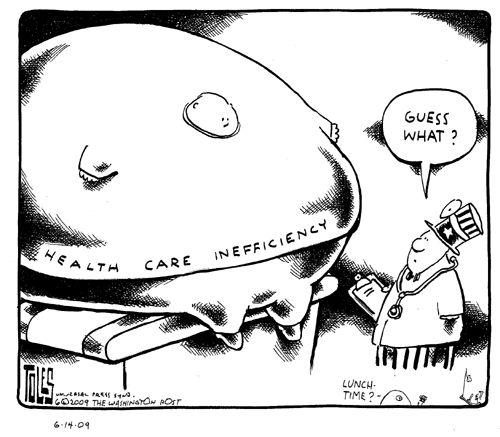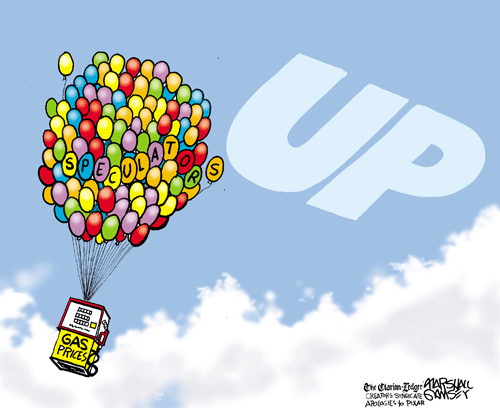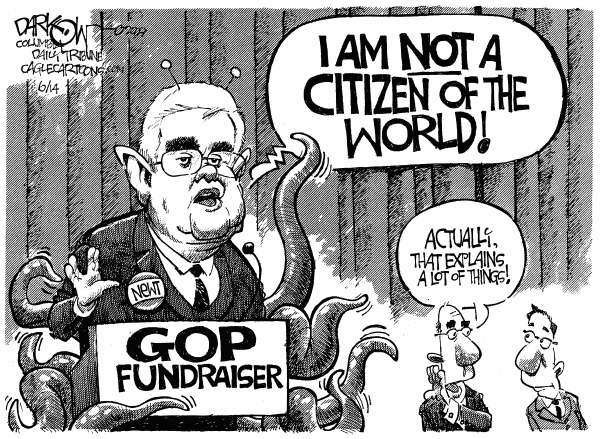There are too many “facts” being thrown around in the healthcare debate, and not enough information for me to figure out which ones are true. This is made worse by “facts” that I know are false. For example, I keep hearing opponents of health care reform claim that if health insurance was provided by the government, then you will not be able to pick your own doctor. Not only is this not true in every plan being proposed in the US, it is not even true in any country I know of that has single payer health insurance.
But other “facts” are more difficult to evaluate. For example, I keep hearing about long waiting lines in Canada for certain treatments, or to see specialists. Or about people crossing the border from Canada to the US to take advantage of our “superior” health care. It shouldn’t be difficult to actually find out if either of these things are true. How many people come to the US for medical procedures? How does this compare to the number of people in the US who travel to other countries to get medical procedures? Where are these numbers?
What we are left with — which is better than nothing — is anecdotal evidence. For example, a posting today in Reddit from a Canadian, giving what looks to be a fairly balanced view of the Canadian health care system — largely positive, but not afraid to point out things that could be better.
A better researched example, but still anecdotal, is this excellent article in The New Yorker that argues that “Costlier care is often worse care” in the US.
So I guess I will throw in my anecdotal evidence too. I am actually in a fairly good position to provide anecdotal evidence for and against health care reform. I have mainly lived in the US, but I have also lived — and more importantly had interactions with the health care system — in three other countries: England, Canada, and New Zealand. In addition, I have good friends in all of those countries, including friends who have lived both in the US and those countries, and we have had discussions about the relative merits of the various systems. This is what I’ve found:
- Nobody I know prefers the system in the US. Not even close. I know people who will no longer travel to the US, just because they have had bad experiences with the US health care system.
- I have talked to more people who have traveled to other countries to get health care they either could not get here (because it was not yet approved) or could not afford (because it was cheaper to fly to another country and get a treatment than it was to get it here), than people who have traveled from other countries to the US to get treatment.
- You cannot talk about single payer systems in other countries as if they were all alike. There are many variations.
This last point is important. I lived in England during the Thatcher era, which is many ways was similar to some of our recent conservative administrations. Prime Minister Thatcher spent a lot of time trying to destroy the social programs created by the previous left-wing Labour governments, including the single payer health care system. As a result, I would say that England had the worst single payer system I have had to deal with. Still better than the current US system.
Canada, where I have lived multiple times, comes in second. Better than the British system, and far better than the US, but could definitely use some improvements. One thing I specifically don’t like about the Canadian system is that you cannot buy extra private insurance if you want it. You are locked into their system, period.
The best system I have had personal experience with is in New Zealand. In NZ, doctors and hospitals are privately run, but the government pays for basic preventative care and for major medical problems. There is an emphasis on keeping everyone healthy through regular check-ups and early detection of serious problems, and the government also pays for big things (the kind that usually bankrupts people in the US). Supplemental private health insurance is available, if you want and can pay for it, and is relatively inexpensive (since it doesn’t have to pay for basic preventative care, nor for hugely expensive problems).
One thing that surprised me was that automobile insurance was also far cheaper than equivalent insurance in the US, because it did not need to cover medical expenses. So you saved a ton of money: no out-of-pocket health insurance costs other than what you paid in taxes to cover that insurance, which was far less than paying for an equivalent health insurance policy in the US; and far cheaper car insurance.
As for long waits, when I needed to see a doctor in NZ, I called a doctor who was located within walking distance of where I lived, and got an appointment for the next morning. I showed up with all my private information — ready to fill out a bunch of forms — and was surprised to find out that I did not need to fill out anything. From the time I showed up, until I was sitting in front of the doctor, was less than 5 minutes. And the doctor didn’t feel any need to practice defensive medicine. She mentioned some tests that I could get if I wanted them, but said she didn’t think they were warranted. Since I had already had similar tests in the US, I didn’t get them. It was a completely pleasant experience, and I felt like the doctor was not rushed, was willing to answer all of my questions, and discuss all of my options. The whole thing cost me $35 (if I had been a resident of New Zealand, rather than a visitor, it would have been free).
Likewise, I had to refill some prescriptions while I was there, and the total I had to pay (and I was paying the full price, since I was a visitor) was less than the deductible amount I was paying for the same prescriptions in the US. So it was cheaper to pay full price for drugs in NZ than to get them with health insurance supposedly paying for them in the US. And the full price of the drugs in the US (if I had not had an expensive insurance plan that covered prescriptions) was over four times what they cost in NZ. And of course, if I was a resident of NZ, they would have been free.
I had a similar experience when a friend had an allergic reaction and was having problems breathing. We called the nearest hospital, and they said to bring her in. When we arrived, they had already prepared a room for her in advance (I have never had that happen in the US) and again, she was talking to a doctor within minutes of arriving. Their treatment worked, and she was breathing normally again, but they asked her to stay for a few hours so they could make sure everything was alright before they released her. While we were waiting, I started wondering how much this was going to cost (since she was also a visitor and not covered by the NZ health plan), but when we went to leave, we were not charged anything. Also, the total amount of paperwork she had to fill out was her name and address, and a couple of questions about any drugs to which she might be allergic.
A few month after that, back in the US, I had to go to an urgent care center for a minor emergency, and the paperwork they had me fill out took 45 minutes to finish, and then I had to wait over an hour before I got to see a doctor who was obviously rushed. The experiences were like night and day. And even not counting my expensive health insurance plan I had to pay for in the US, my emergency in the US cost me far more than a more serious emergency in NZ.
So the point of all this is that it is not just important that we get health insurance reform, it is very important what system we end up with. There are powerful forces in the US who want health care reform to fail, just like Thatcher wanted it to fail in the UK. If we let these people influence the new system, we will end up with a poor system. Then they will be able to shout “I told you so” about government-run health care.
Don’t let them do it. We need facts. We need to look objectively at the health care systems in other countries, and pick the parts that will work for us, and get rid of those things that don’t work. We can’t figure out a good health care system based on lies and deceptions, or on misleading labels like “socialist” or “government takeovers”.
Our health depends on it.
UPDATE: Another good article about health care reform in the New York Times, with more information about the Canadian system.
UPDATE 2: An editorial in Newsweek by Tom Daschele, “A public plan will reduce costs and improve access” makes the point that a public plan will offer “a far greater choice of docitors than private plans do.”
UPDATE 3: More information from Canada — with evidence that Canadians love their health care system.


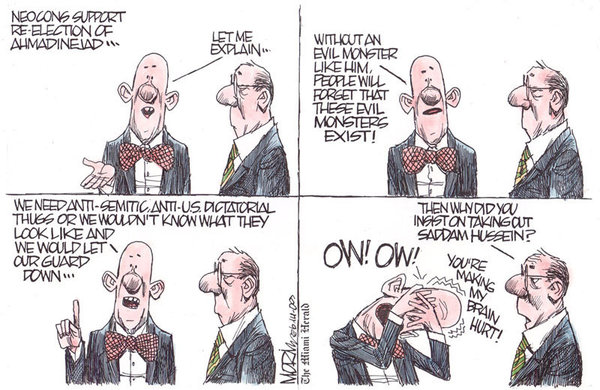

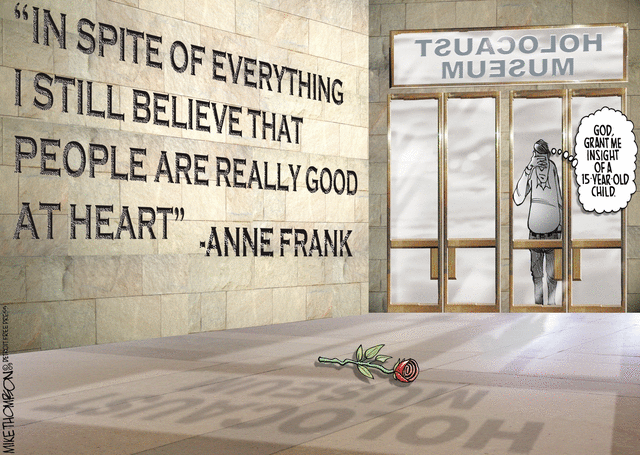
 I think those of you that regularly exercise — playing softball, baseball, basketball, soccer, mountain biking, running, rock climbing, skiing, skating, running — you’re the people getting injured. You’re the people showing up at the hospital with busted knees and tendons and skin cancer, ankle sprains, knee and hip replacements, broken bones, concussions, muscle, ligament, tendon, cartilage strains and tears, tendinitis, rotator cuff tears. All you exercise freaks, you’re the ones putting stress on the health care system. What happens when people don’t regularly exercise and keep their weight relatively under control? Nothing! They probably don’t even know their doctors’ names. So you’re urging to go out there do all of this stuff and you’re ending up in the hospital all the time with these injuries and some people think these injuries are badges of honor. A knee surgery scars a badge of honor shows toughness. Yeah. Toughness, somebody else has to pay for.
I think those of you that regularly exercise — playing softball, baseball, basketball, soccer, mountain biking, running, rock climbing, skiing, skating, running — you’re the people getting injured. You’re the people showing up at the hospital with busted knees and tendons and skin cancer, ankle sprains, knee and hip replacements, broken bones, concussions, muscle, ligament, tendon, cartilage strains and tears, tendinitis, rotator cuff tears. All you exercise freaks, you’re the ones putting stress on the health care system. What happens when people don’t regularly exercise and keep their weight relatively under control? Nothing! They probably don’t even know their doctors’ names. So you’re urging to go out there do all of this stuff and you’re ending up in the hospital all the time with these injuries and some people think these injuries are badges of honor. A knee surgery scars a badge of honor shows toughness. Yeah. Toughness, somebody else has to pay for.